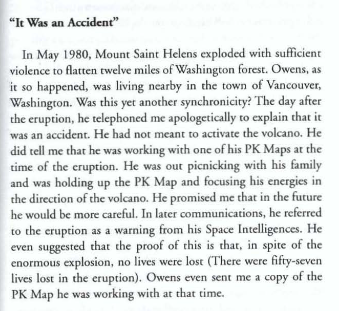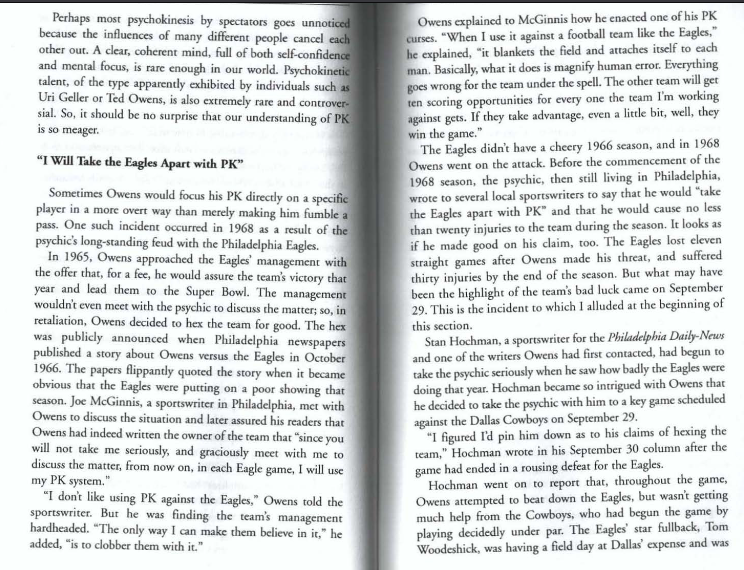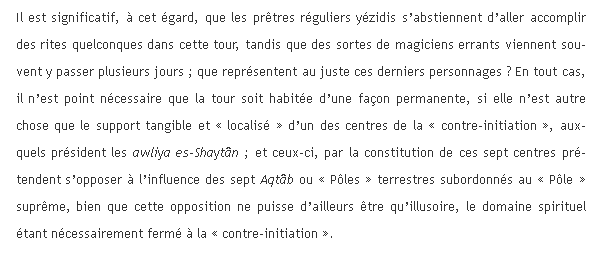THE PK MAN – The story of Ted Owens / THREAD
Ted Owens claimed to have powers ranging from precognition, telekinesis, and telepathy to levitation, the power to cause natural disasters, and the power to direct and manifest UFOs.

Ted Owens claimed to have powers ranging from precognition, telekinesis, and telepathy to levitation, the power to cause natural disasters, and the power to direct and manifest UFOs.


Despite how extraordinary his claims are, many of the people in his life gave testimony to his abilities; when Mishlove began researching his case, he received a pile 6-inches thick of affidavits, letters, newspaper clippings, etc. in his support. 



On various occasions he turned his powers to stopping droughts: in the UK, the US, and even Australia. 

After becoming angry with a newspaper not reporting one of his UFO manifestations, he turned his powers against them: 



Owens was taught to speak to animals by his grandparents; his grandfather in particular seems to have shared some of the same talents. 

Throughout his life he was accompanied by poltergeist phenomena – much to the rue of his family and associates. 

He claimed his methods could be learnt by anyone, and successfully trained some. He taught meditation, visualization, affirmations. He would imagine a “chamber” through which “higher intelligences” would communicate with him – including two entities he named Twitter and Tweeter. 

Mishlove compares Owens’ abilities to those of a sportsman – not performing well in every game, but over the course of a career, distinguishing himself from his fellows. There are so many interesting things reported in the book that it was hard to choose what to share. /END
• • •
Missing some Tweet in this thread? You can try to
force a refresh































